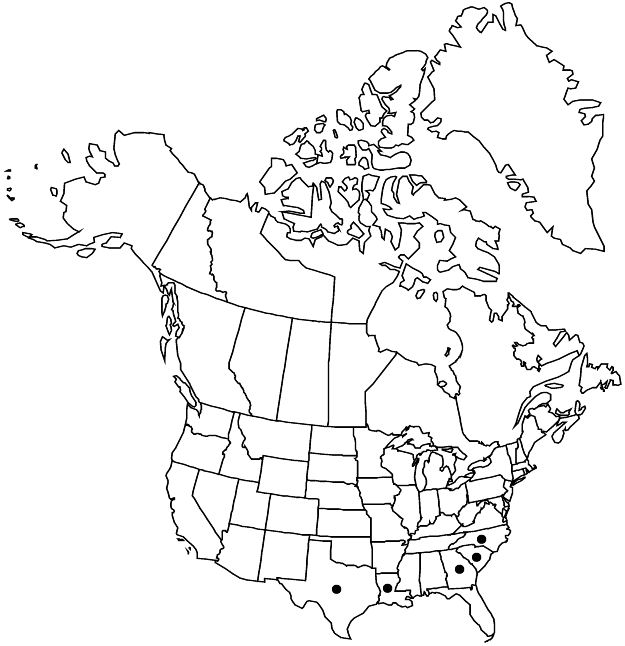Tamarix canariensis
Abh. Königl. Akad. Wiss. Berlin 1812 – 1813: 79. 1816.
Common names: Canary Island tamarisk
Introduced
Shrubs or trees, to 5 m. Leaves: blade lanceolate, 1.5–2.5 mm. Inflorescences 1.5–5 cm × 4–5 mm; bract reaching or exceeding calyx tip. Flowers 5-merous; sepals 1.5–1.8 mm, margins denticulate; petals obovate, 1.2–1.5 mm; antisepalous stamens 5, filaments confluent with nectar disc lobes, all originating from edge of disc.
Phenology: Flowering spring–summer.
Habitat: Ocean shorelines, riverways, sandy soil
Elevation: 0–300 m
Distribution

Introduced; Ga., La., N.C., S.C., Tex., s Europe (Sardinia), s Europe (Sicily), n Africa (Tunisia), Atlantic Islands (Canary Islands)
Discussion
Tamarix canariensis is morphologically very similar to, and may form hybrids with T. gallica.
Selected References
None.
Lower Taxa
None.
... more about "Tamarix canariensis"
lanceolate +
Canary Island tamarisk +
straight +
absent +
confluent +
5-merous +
capsular +
loculicidal +
true +
sessile +
alternate +
scale-like +
denticulate +
fleshy +
plurilocular +
pear--shaped +
bitegmic +
anatropous +
parietal +
absent +
thin +
obovate +
(2-)3-4(-5)-carpellate +
Abh. Königl. Akad. Wiss. Berlin +
1816 +
attached +
distinct +
equal +
beaked +
comose +
Introduced +
absent +
Tamarix canariensis +
Tamarix +
species +